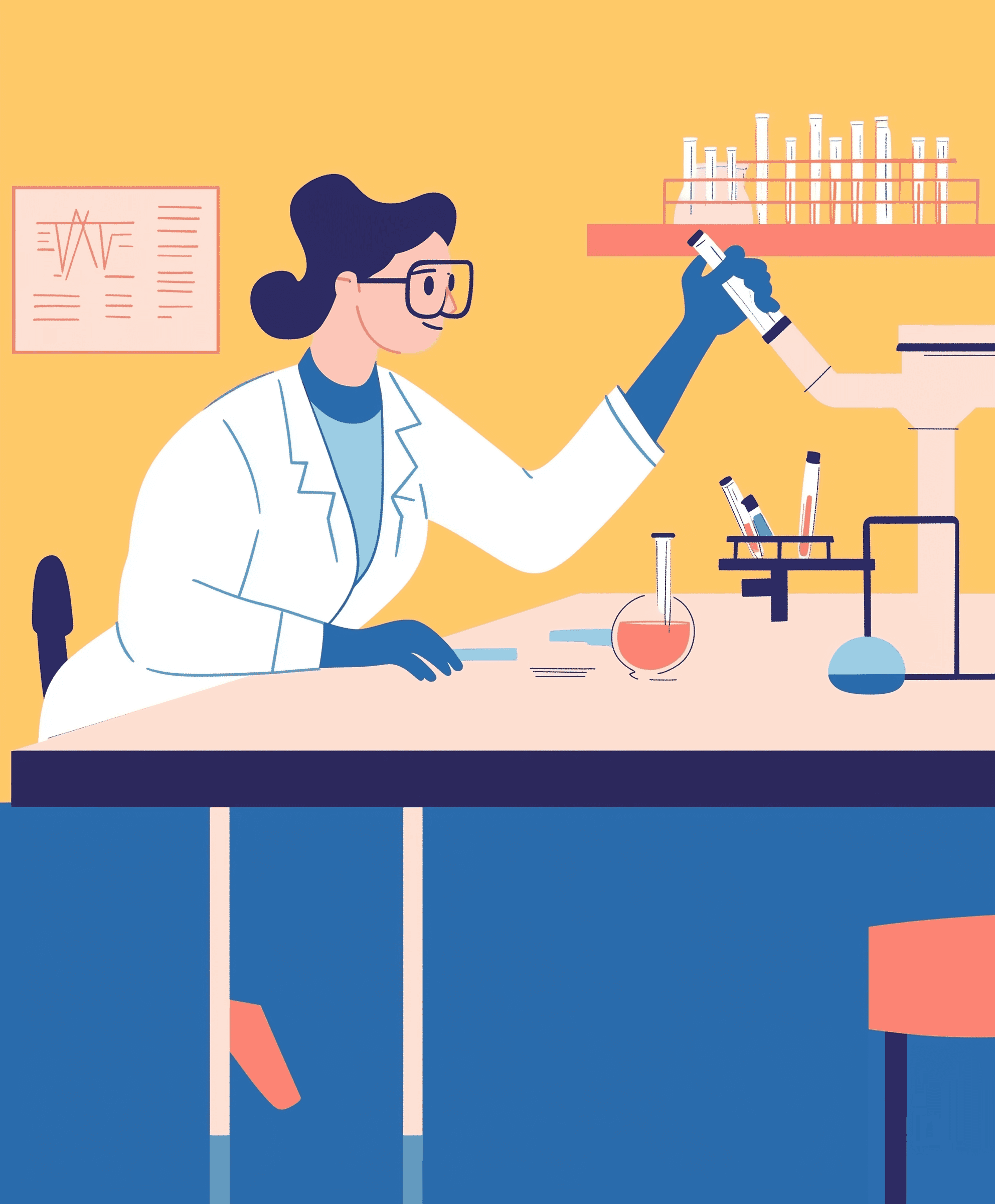psychometrics
Jan 23, 2021
Can We Assess Toxic Workplace Traits?
As companies become more attuned to the detrimental effects of toxic work environments, the importance of assessing behaviors that contribute to toxicity has come to the forefront. Toxic workplace traits can lead to lowered morale, stifled productivity, and increased turnover. Some of the more insidious traits—like narcissism and Machiavellianism—may not be immediately apparent but can subtly erode a team’s cohesion over time. At ASSESS, we believe that understanding these traits through psychometric tools allows organizations to take proactive measures, fostering healthier, more collaborative workplaces.
Defining Toxic Traits in the Workplace
Toxic traits vary widely in the workplace, and while some are subtle, others are overtly disruptive. Common toxic traits include:
Poor Communication: Miscommunication or an unwillingness to engage in open dialogue can result in misunderstandings, confusion, and ultimately low morale.
Blame Culture: Individuals who regularly deflect responsibility or blame others can harm team dynamics, preventing accountability and growth.
Bullying or Harassment: This includes intimidating, demeaning, or belittling behaviors, which are among the clearest indicators of a toxic workplace.
Narcissism: People with narcissistic tendencies often have a grandiose sense of self-importance, frequently disregarding the input or achievements of others. Their need for admiration and entitlement can create friction and hinder collaboration.
Machiavellianism: This trait, defined by manipulative and exploitative tendencies, involves individuals using deceit or coercion to get their way. Such behaviors can lead to distrust and a hostile work atmosphere.
Uncooperativeness and Negativity: Constant criticism, refusal to engage, or persistent pessimism can sap the energy of a team and prevent collective progress.
Recognizing these traits can be challenging, especially when they aren’t overtly displayed. However, through structured psychometric assessments, organizations can identify patterns and predict behaviors that might be disruptive.
Psychometric Assessments for Toxic Traits
Modern psychometric tools allow for a nuanced evaluation of personality and behavioral tendencies, helping to identify signs of toxicity. These assessments offer insights into aspects such as emotional intelligence, conflict resolution styles, and predispositions toward certain behaviors. When tailored to assess personality traits like narcissism and Machiavellianism, they can highlight tendencies that might otherwise go unnoticed.
For example, Personality Assessments may be tailored to flag behaviors related to narcissism and Machiavellianism. These can help in understanding tendencies for manipulation, self-centeredness, and disregard for team welfare. A common tool used in such evaluations is the Dark Triad Inventory, which assesses levels of narcissism, Machiavellianism, and psychopathy—traits associated with toxic behaviors. While psychopathy might not often be a key consideration in workplaces, identifying the other two traits can be crucial for maintaining a positive work environment.
In addition to personality inventories, Situational Judgment Tests (SJTs) can simulate work scenarios to reveal how individuals might react under pressure or in challenging team situations. Those who score high in toxic traits may respond with aggression, manipulation, or defensiveness in these scenarios, offering a glimpse into their likely real-world behaviors.
Benefits of Assessing Toxic Traits
By proactively identifying toxic traits, organizations can create a culture that prioritizes emotional intelligence, empathy, and collaboration. Some of the benefits include:
Improved Hiring Decisions: With assessments for traits like narcissism and Machiavellianism, hiring managers can make more informed decisions, choosing individuals whose personalities align with a healthy work culture.
Enhanced Team Cohesion: Identifying and addressing toxic traits enables companies to build more cohesive teams, reducing conflict and increasing mutual respect.
Increased Retention: Employees are more likely to stay with a company where they feel respected and valued, free from the negative impact of toxic behaviors.
Targeted Development Programs: For individuals who exhibit potentially harmful traits, customized development plans can focus on building emotional intelligence, improving communication, and encouraging accountability.
Conclusion
The ability to assess toxic workplace traits can transform an organization’s culture, helping leaders address potentially harmful behaviors before they escalate. Psychometric tools offer a powerful way to detect tendencies for narcissism, Machiavellianism, and other traits associated with toxicity. At ASSESS, we’re committed to helping organizations build healthier work environments by providing the tools to identify, understand, and mitigate these traits. By fostering a culture that promotes respect, collaboration, and personal growth, companies can create workplaces where every team member has the opportunity to thrive.
More blogs to read

Digital transformation
Unleashing the Power of Digital Transformation: ASSESS’s Organizational Assessment Approach
ASSESS’s digital transformation assessment provides a comprehensive roadmap for digital transformation, focusing on digital readiness and digital maturity.
Continue reading

Ability assessment
Unlocking Talent Potential with ASSESS Focus: A Revolutionary Cognitive Ability Tool
ASSESS Focus, a cognitive ability assessment tool, designed to empower recruiters and HR professionals with meaningful insights into candidates’ ability.
Continue reading

Personality assessment
Exploring the 16 Personalities: A Guide to Understanding Yourself and Others
The MBTI sorts personality into 16 types, each represented by a unique four-letter code.
Continue reading

Personality assessment
Understanding the Big Five Personality Traits and Their Impact on Success
The Big Five—Openness, Conscientiousness, Extraversion, Agreeableness, and Neuroticism—capture the core dimensions of personality.
Continue reading

Sales assessment
Building Success: Essential Sales Competencies for High-Performing Teams
Sales competencies—core skills, behaviors, and attributes that influence sales performance—are critical for developing, and retaining top-performing salespeople
Continue reading

Sales assessment
Unlocking Sales Potential: How Assessments Drive Recruitment and Performance
Skills like communication, persuasion, and resilience are vital, but they’re not always easy to gauge in an interview.
Continue reading

Sales assessment
Enhancing Recruitment and Development with Sales Assessments
A sales assessment is a psychometric tool designed to evaluate traits, competencies, motivators, and cognitive abilities relevant to sales roles.
Continue reading

Assessment center
Types of Assessment Center Exercises
This post provides a list of potential assessment center exercises that could be used in talent selection or development.
Continue reading

Assessment center
Designing an Effective Assessment Center
Assessment Centers offer a structured, immersive approach to evaluate candidates' skills, behaviors, and potential, providing a rich basis for decision-making.
Continue reading

Leadership
What is Leadership Development Assessment?
Leadership assessment for development focuses on identifying a leader’s strengths, gaps, and growth potential to guide targeted development efforts.
Continue reading

Career orientation
Most Relevant Career Orientation Assessment Frameworks
Career orientation assessments provide valuable insights into an individual’s strengths, preferences, and interests.
Continue reading

Employee engagement
Top Five Employee Engagement Drivers: Backed by Research
Employee engagement is critical for organizational success, impacting productivity, retention, and overall company performance.
Continue reading

Assessment
Talent Assessment Using ISO 10667: Ensuring Quality and Consistency
To standardize talent assesment practices and ensure their quality, ISO 10667 provides a comprehensive framework.
Continue reading

Talent acquisition
How to Select the Right Assessment Tools for Your Organization
Choosing the right assessment tools is crucial for organizations aiming to make informed decisions about recruitment, employee development, and talent selection
Continue reading

Recruitment
Hiring Millennials: How Talent Assessments Help Build an Independent and Innovative Workforce
As millennials continue to make up a larger share of the workforce, companies must adapt their hiring strategies to attract and retain this dynamic generation.
Continue reading

Competency
ASSESS Grammar Test: Boosting Workplace Communication Skills
Proper grammar is essential for conveying messages accurately, whether in emails, reports, or client interactions.
Continue reading

Competency
Manages Ambiguity: Navigating Uncertainty with Confidence
In today’s dynamic business environment, leaders often face situations where information is incomplete, outcomes are uncertain, or events unfold unpredictably.
Continue reading

Competency
Decision Quality: A Cornerstone of Effective Leadership
Decision quality represents a leader’s ability to make well-considered, timely, and effective decisions, even in complex or ambiguous situations.
Continue reading

Competency
Instills Trust: A Key Leadership Competency
Trust is a cornerstone of effective leadership and organizational culture.
Continue reading

psychometrics
Can We Assess Toxic Workplace Traits?
As we become more attuned to the detrimental effects of toxic styles, the importance of assessing behaviors that contribute to toxicity has become critical.
Continue reading

Ability assessment
The Power of Cognitive Ability Tests in Talent Management
Cognitive ability tests are effective tools for evaluating potential to excel in roles that demand analytical thinking, quick learning, and problem-solving.
Continue reading

360 degree feedback
360-Degree Feedback: Benefits, Challenges, and Best Practices
360-degree feedback has become a popular tool in talent development, particularly for enhancing leadership skills and fostering continuous improvement.
Continue reading

Psychometrics
How to Use Personality Assessments to Improve Team Dynamics
Effective teamwork is essential for organizational success, and one of the best ways to enhance team dynamics is through personality assessments.
Continue reading

Psychometrics
The Science Behind Psychometric Testing: How Assessments Drive Better Hiring Decisions
The Science Behind Psychometric Testing: How do assessments drive better results using scientific methods, such as validity and reliability testing.
Continue reading

Organizational surveys
Measuring Organizational Health: Key Metrics and Why It Matters
Discover how measuring organizational health through key metrics like engagement, leadership, and culture alignment can boost long-term success and adaptability
Continue reading

Assessment tools
Assess International vs. AssessFirst: A Comparative Overview
Assess International vs. AssessFirst: A Comparative Overview
Continue reading

Personality assessment
The 16 MBTI Personality Types: A Detailed Overview
MBTI categorizes people into 16 distinct personality types based on four key dichotomies. They shape how people interact with the world.
Continue reading

Cognitive ability
Understanding Cognitive Ability Assessments: Unlocking Mental Potential
Cognitive ability assessments are tools that measure the intellectual capacity, such as reasoning, attention, memory, and learning.
Continue reading

Coaching
The Role of Assessment in Coaching: Unlocking Potential through Insight
One of the primary benefits of using assessments in coaching is that they promote self-awareness. Assessments provide objective, data-driven insights
Continue reading

Personality assessment
Unlocking Self-Awareness with the Enneagram Test: A Path to Personal Growth and Understanding
Explore the Enneagram test, a powerful tool for self-awareness, personal growth, and improving relationships through understanding motivators and behaviors.
Continue reading

Personality assessment
Understanding the DISC Personality Assessment: A Pathway to Better Communication and Teamwork
Discover how the DISC personality assessment improves communication, enhances teamwork, and strengthens relationships by understanding behavior styles.
Continue reading

Personality assessment
The Importance and Value of the MBTI Assessment: A Tool for Self-Awareness and Team Dynamics
Discover the importance and value of the MBTI assessment in fostering self-awareness, improving communication, and enhancing team dynamics.
Continue reading

Talent Management
Understanding Generation Z: Engaging the Restless Workforce
Generation Z, born roughly between 1997 and 2012, is entering the workforce with a unique set of expectations and challenges. Companies seeking to engage and retain Gen Z talent need to understand what drives this generation.
Continue reading

Talent management
Why do employees stay at your company
Talent Management, embodied in attracting, retaining, and motivating superior employees is a critical issue as it is amongst the top concerns for modern cor ...
Continue reading

Career
Unlocking Career Success with ASSESS Career Orientation: A Comprehensive Approach
Choosing the right career is one of the most significant decisions you will make in life. It shapes not only your professional trajectory but also impacts y ...
Continue reading

Assessment
What is an Assessment Center?
The term assessment center has been widely used in the fields of industrial psychology and human resources management for more than 50 years ...
Continue reading

Assessment
Personality Psychology & Job Performance
Personality psychology is a branch of psychology that focuses on defining and explaining personality as well as identifying individual differences between p ...
Continue reading

Leadership
Chameleon Leader: Situational leadership model
Leadership theory has been studied for many years. There are many different theories that define leadership from different perspectives, all expressing thei ...
Continue reading

Career
Understanding your core values as a human
You place great emphasis on understanding the values that shape your thoughts and lifestyle. Your quest for finding meaning in life drives you to seek align ...
Continue reading

Tools
Can Values Be Measured Using Assessment Tools?
The question of whether values can be accurately measured through assessment tools has been a topic of debate in psychological, organizational, and educatio ...
Continue reading

Phsycometrics
Understanding the different types of psychometric testing categories
Psychometric testing has become a valuable tool in various fields, including recruitment, personal development, and career orientation
Continue reading

Talent
Talent abiligy post pandemic
While many businesses have withstood the economic shock brought on by Covid19, nonetheless making amendments within the organization’s practices and strateg ...
Continue reading

Products
The role of ASSESS OCM in recruitment and professional development
In today’s fast-evolving workplace, organizations are continuously seeking ways to optimize their talent management processes. One of the most effective too ...
Continue reading

Psychometric, Assessment
How to Prepare for a Psychometric Assessment
Psychometric assessments are becoming a common part of the recruitment process and personal development programs. These tests measure a variety of cognitive ...
Continue reading

Psychometric, Assessment
What is a Psychometric Assessment Test?
Psychometric assessment tests have become an essential tool for businesses, educational institutions, and individuals seeking to understand personality trai ...
Continue reading
Individual Development
